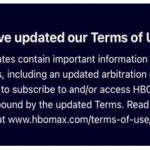
Consumers Who Don’t Read “Clickwraps” Are Still Bound By Them–Toth v. Everly Well
Raise your hand 🙋♂️ if this could describe you too: Joyce Toth clicked on a checkbox indicating that she read and accepted certain terms and conditions, which were contained in a linked “User Agreement.” Her representation was only half true….

Internet Law Professors Submit a SCOTUS Amicus Brief on Online Age Authentication–Free Speech Coalition v. Paxton
Along with seven other Internet Law professors, I filed an amicus brief with the US Supreme Court in the case of Free Speech Coalition v. Paxton. The lawsuit challenges Texas HB 1181, which is basically a resurrection of the old…

Second Circuit Says More About the “Reasonable Internet User” Standard for TOS Formation–Edmundson v. Klarna (Catchup Post)
[I missed this opinion when it first came out in 2023. Blogging for completeness because of the importance of the “reasonable Internet user” standard.] Klarna offers a “buy now, pay later” option to consumers at third-party e-commerce sites. If a…

SAD Scheme Leads to Another Massively Disproportionate Asset Freeze–Powell v. Schedule A
[Reminder: I don’t blog all of the SAD Scheme cases I see, and the ones I blog are more exemplars of the general principles than standout or unique cases.] Kate Louise Powell is a Scotland-based artist. (I wonder how she…

It’s Hard to Bind Former Subscribers to TOS Amendments–Brooks v. WarnerMedia
This is a VPPA case over Meta Pixels. 🙄🙄🙄 Everyone agrees this lawsuit will be going to arbitration per the HBO Max TOS. However, in 2022, HBO Max swapped arbitration providers from AAA to NAM. The opinion doesn’t clearly explain…

DMCA 512(c) Helps Redbubble Defeats Copyright Lawsuit–Wallshoppe v. Redbubble
Wallshoppe makes wallpaper with copyrighted designs, such as the “Pacifico Palm Design” depicted to the right. It has a copyright registration in the design. Wallshoppe found Redbubble merchants selling the design. However, for unspecified reasons, Wallshoppe didn’t submit proper DMCA…

Coursera Wins a TOS Formation Battle, But With Heavy Losses–Ghazizadeh v. Coursera
This is a VPPA case 🙄. Coursera invoked the arbitration clause in its TOS. It gets the arbitration it wanted, but via a messy opinion that does not represent a clean approval of its TOS management practices. Check out how…

Courts Are Rejecting Attempts to Weaponize Laws That Protect Consumer Reviews
In 2014, California enacted AB2365, sometimes called the “Yelp law,” codified at Cal. Civil Code 1670.8. The law prohibits businesses from suppressing consumer reviews (on Yelp or elsewhere). Its main substantive terms: (1) A contract or proposed contract for the…

MA Supreme Court Blesses Uber’s TOS Clickthrough Formation–Good v. Uber
This opinion addresses the aftermath of an Internet lawyer’s nightmare. In Kauders v. Uber Techs., 486 Mass. 557 (Mass. Sup. Ct. Jan. 4, 2021), the Massachusetts Supreme Court struck down Uber’s TOS because it wasn’t properly formed. Maybe I missed…

NC Supreme Court Blesses Unilateral TOS Amendment to Add an Arbitration Clause–Canteen v. Charlotte Metro CU
In 2014, Phillips opened a checking account at Charlotte Metro Credit Union (CMCU) and “entered into a standard membership agreement.” The agreement included a unilateral amendments provision saying that CMCU “may change the terms of this Agreement. We will notify…
